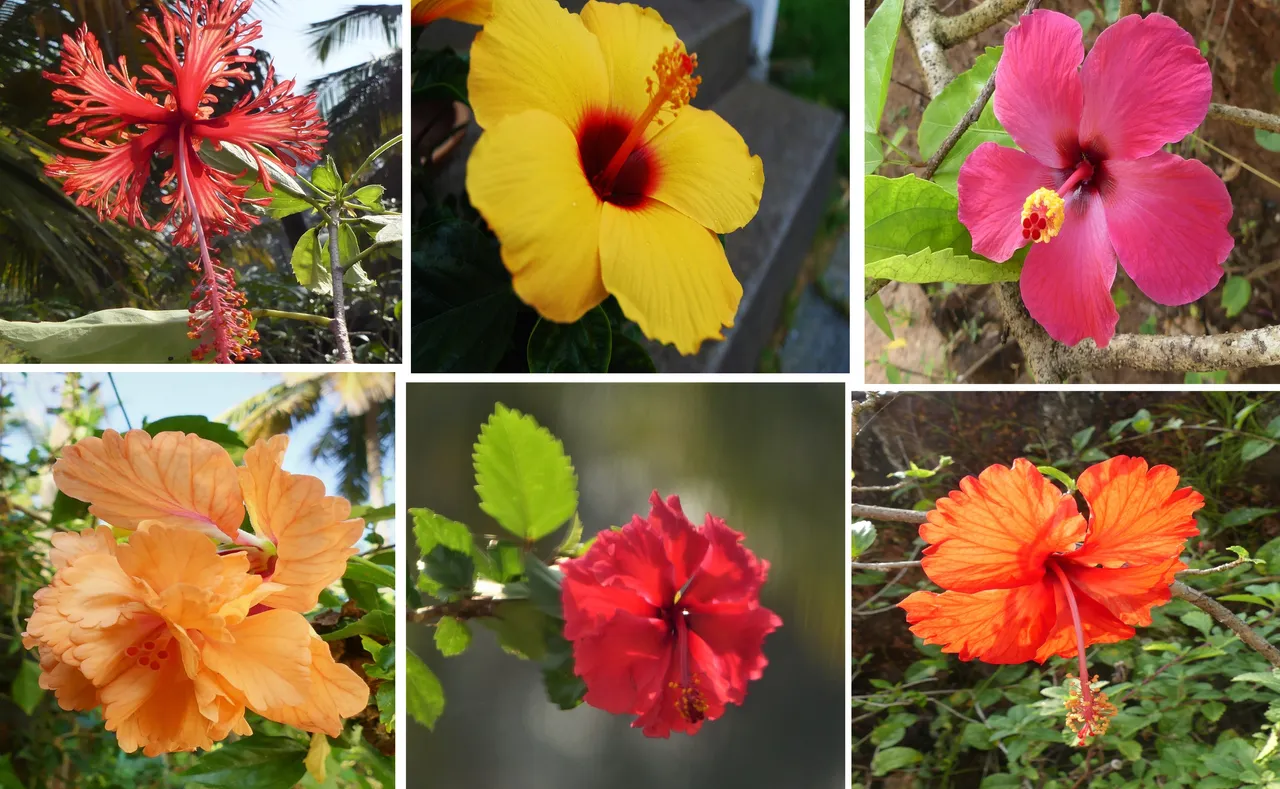
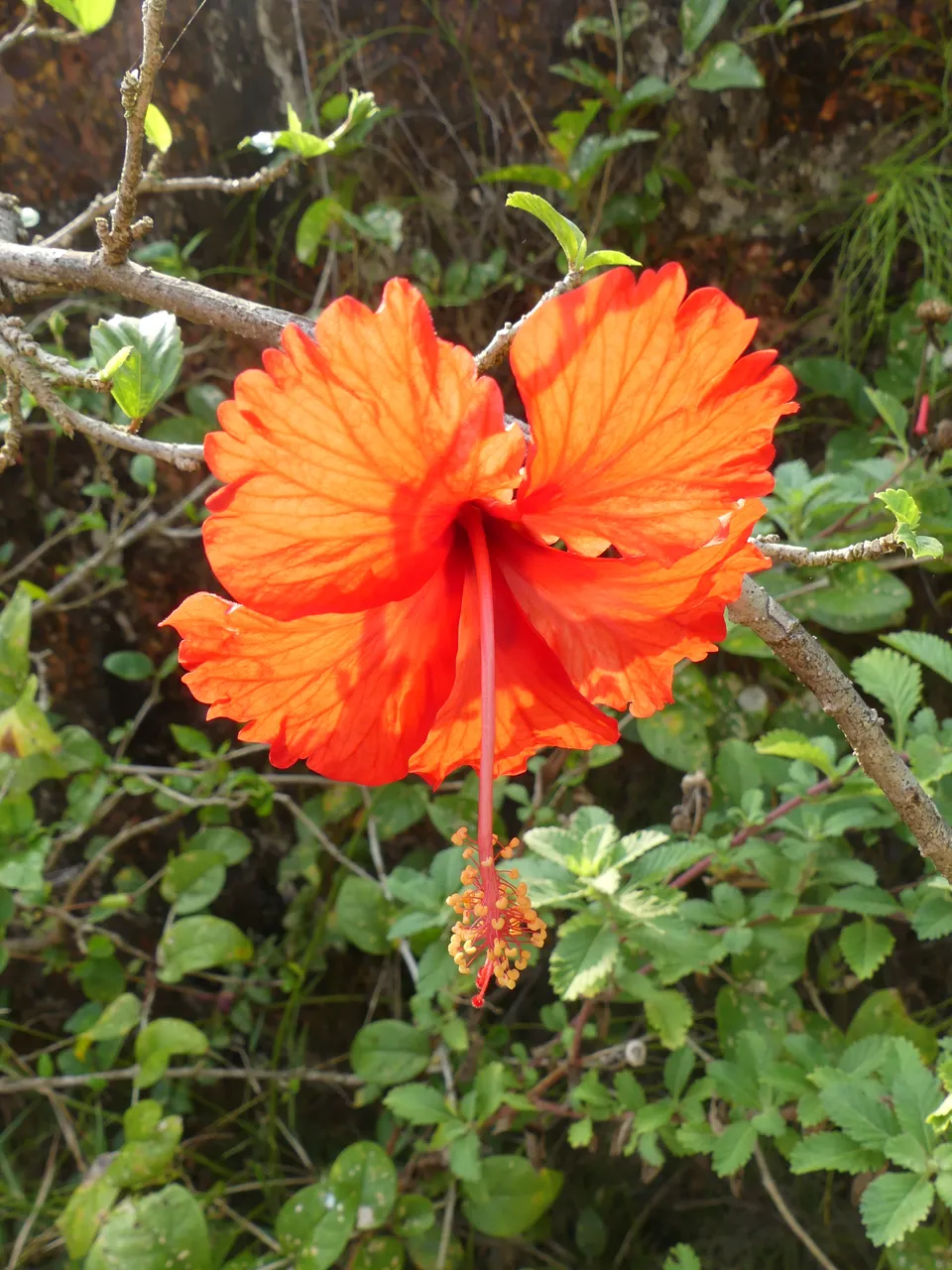
The hibiscus is not only a flowering shrub it is more than that.
Hello, friends greetings 🙏 When a challenge is given, choose one herb you are thankful for. If ask me I can't make up my mind which one I chose because all herbs and plants come from earth I am thankful for them. I grew up with herbal medicine and chose my practice with thousands of herbs; every herb in my life is very important.
But at present, I am far away from that world. But still, I gratitude them all for how they work. Today I will go with a very simple and well-known herb or flowering plant Hibiscus. which gives only flowers not grow any fruits or pods The flower is My God Ganesh's favorite. It has many medicinal and as well as cosmetic benefits.
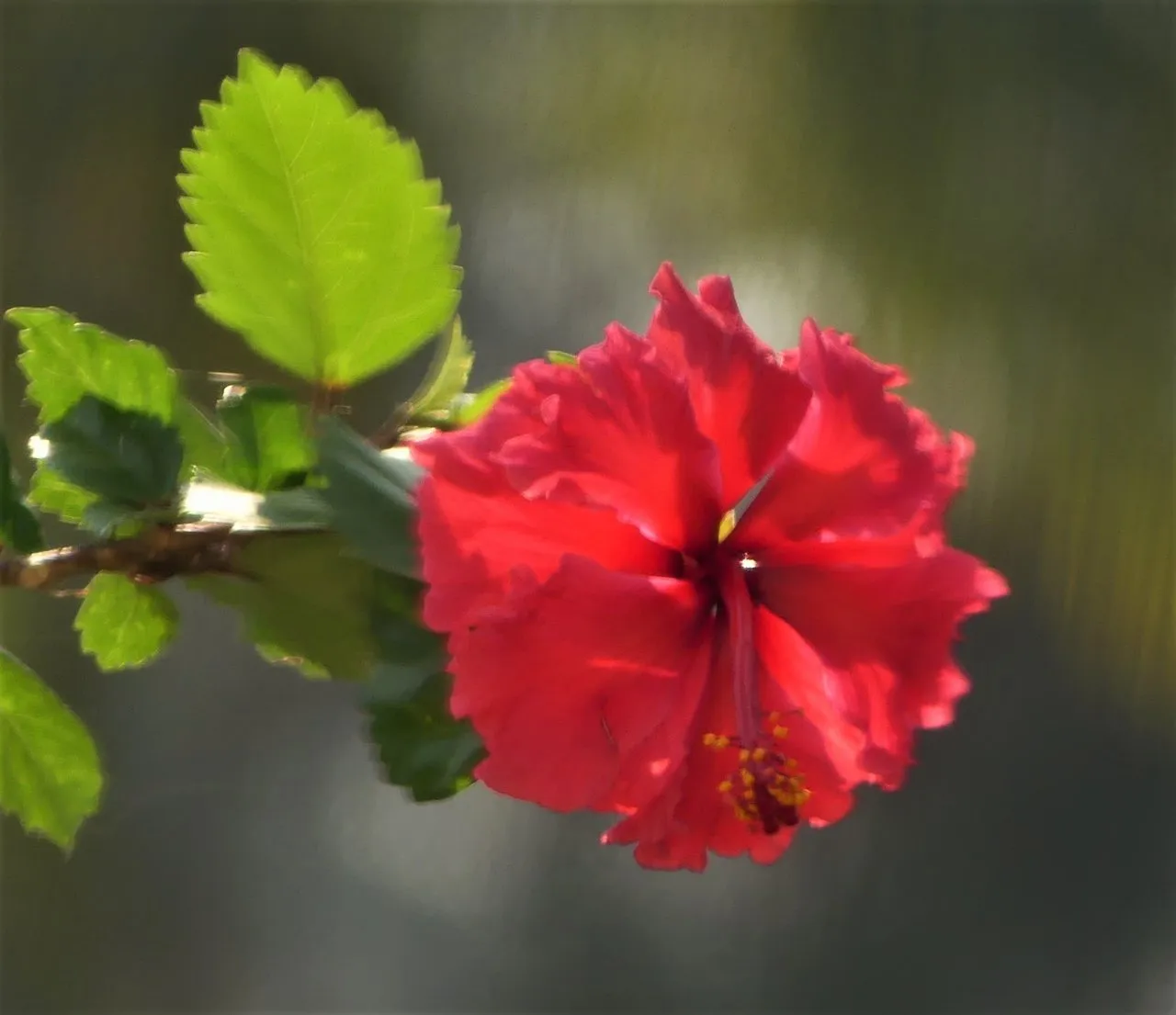
The Sanskrit name Is Japa Pushpa Latin name is Hibiscus rosa-Sinensis It is also known as Japa, Gudahala, or Gudhal In Marathi called Jasvand.
You might think about it as a flowering plant but if go through the details you will find out why I said it is an herb or medicinal shrub.
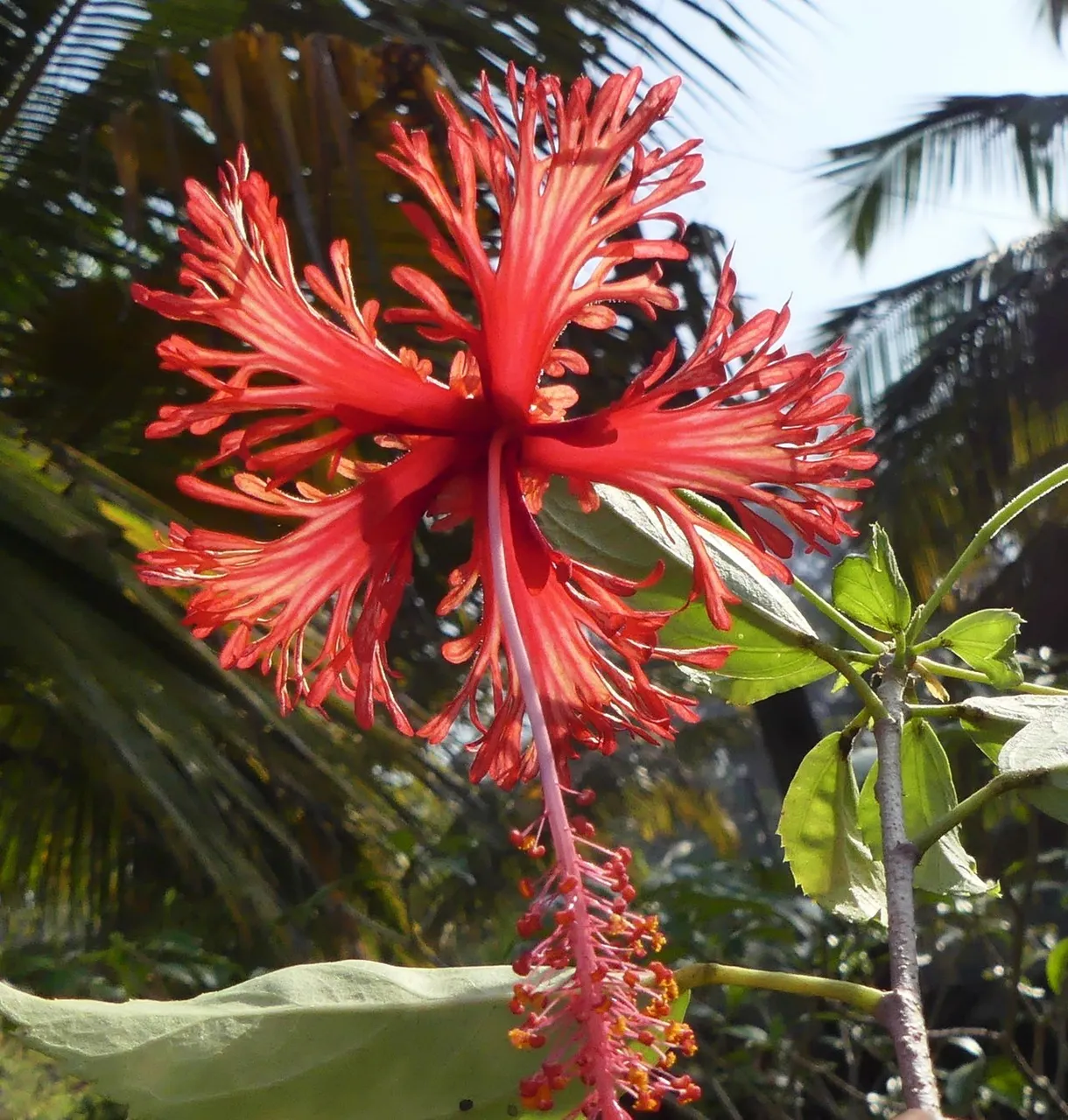
These plants are all around our garden in India. It is an evergreen shrub with dark green leaves. You can find it growing extensively in the tropics and subtropics. They do not need so much attention. only one-time water in a day because our garden has just fine beach sand, not soil. but now I don't have any photos of shrubs/ trees yes they grow like trees.
This is a well-known favorite flower( red color with five petals) of God Ganesh.
but Ayurveda doesn't look at this shrub as only a flowering shrub but is used as a medicinal shrub. Red hibiscus flowers are very common and widely used for medicinal purposes. There are orange, pink, yellow, and white varieties also. The bark, leaves, and flowers are known to possess medicinal properties.
Here are some uses of this herb
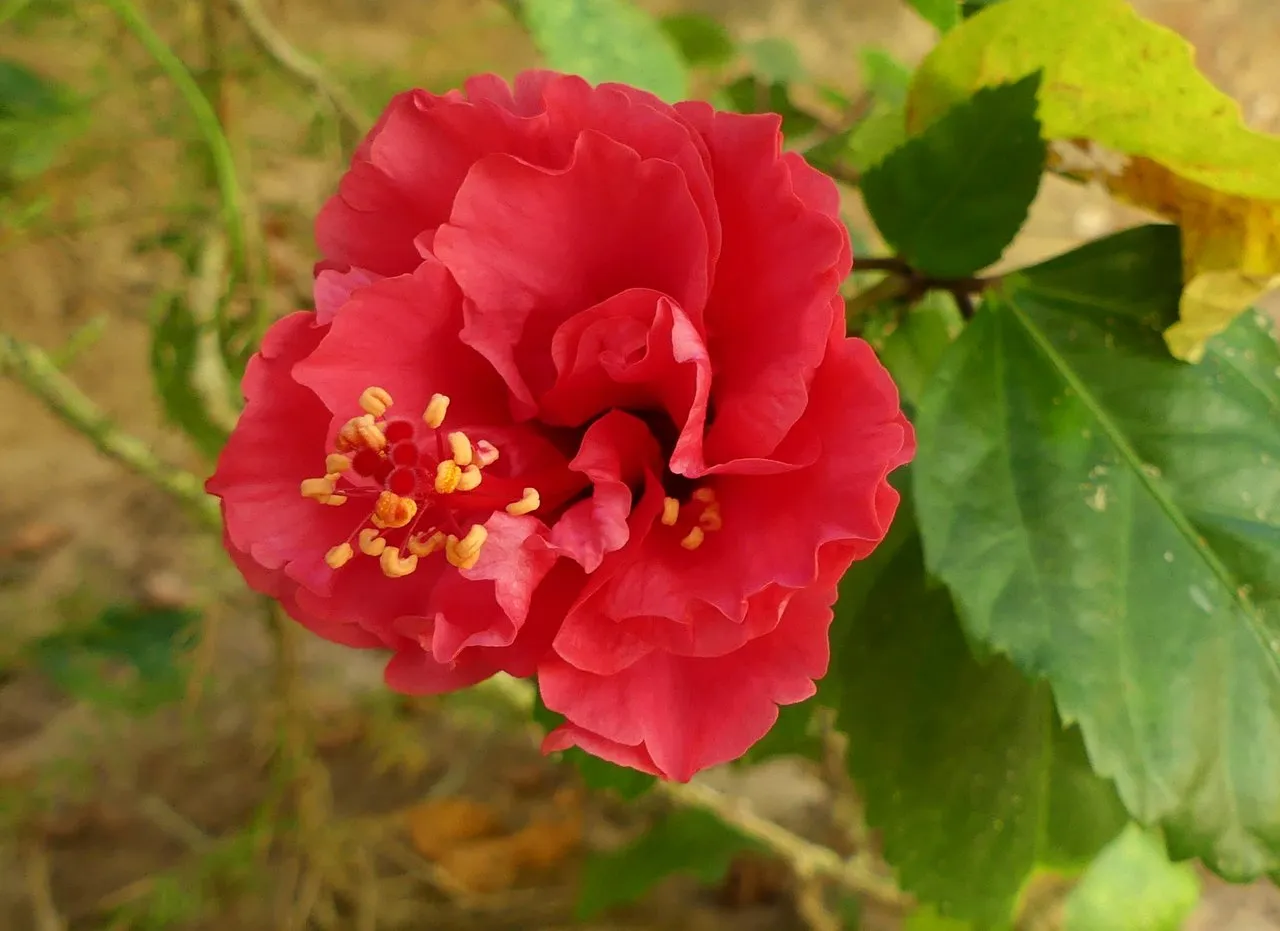
How does hibiscus affect your dosha?
As per Ayurvedic texts and traditional practices, the hibiscus flower is suitable for dealing with imbalanced Pitta and Kapha dosha. It has the ability to reduce vitiated Kapha and Pitta dosha. Since the flower has cooling properties, it is not suitable for people with Vata dosha. It can aggravate it.
It tastes sweet and astringent.
Hibiscus flowers are used in the treatment of heart diseases and to lower blood pressure. It is widely used in gynecological conditions like hemorrhage. hibiscus can also help regulate excessive menstrual bleeding associated with vitiated Pitta dosha.
Due to its anti-hemorrhagic property as well as its Pitta-reducing qualities, it is effective in the treatment of menorrhagia, and leukorrhea (white discharge).
It is also useful in the treatment of painful menstruation. Hemorrhoids, urinary disorders, insomnia, and skin disorders
Hibiscus acts as a contraceptive and so it is not advised for women who are anxious to conceive.
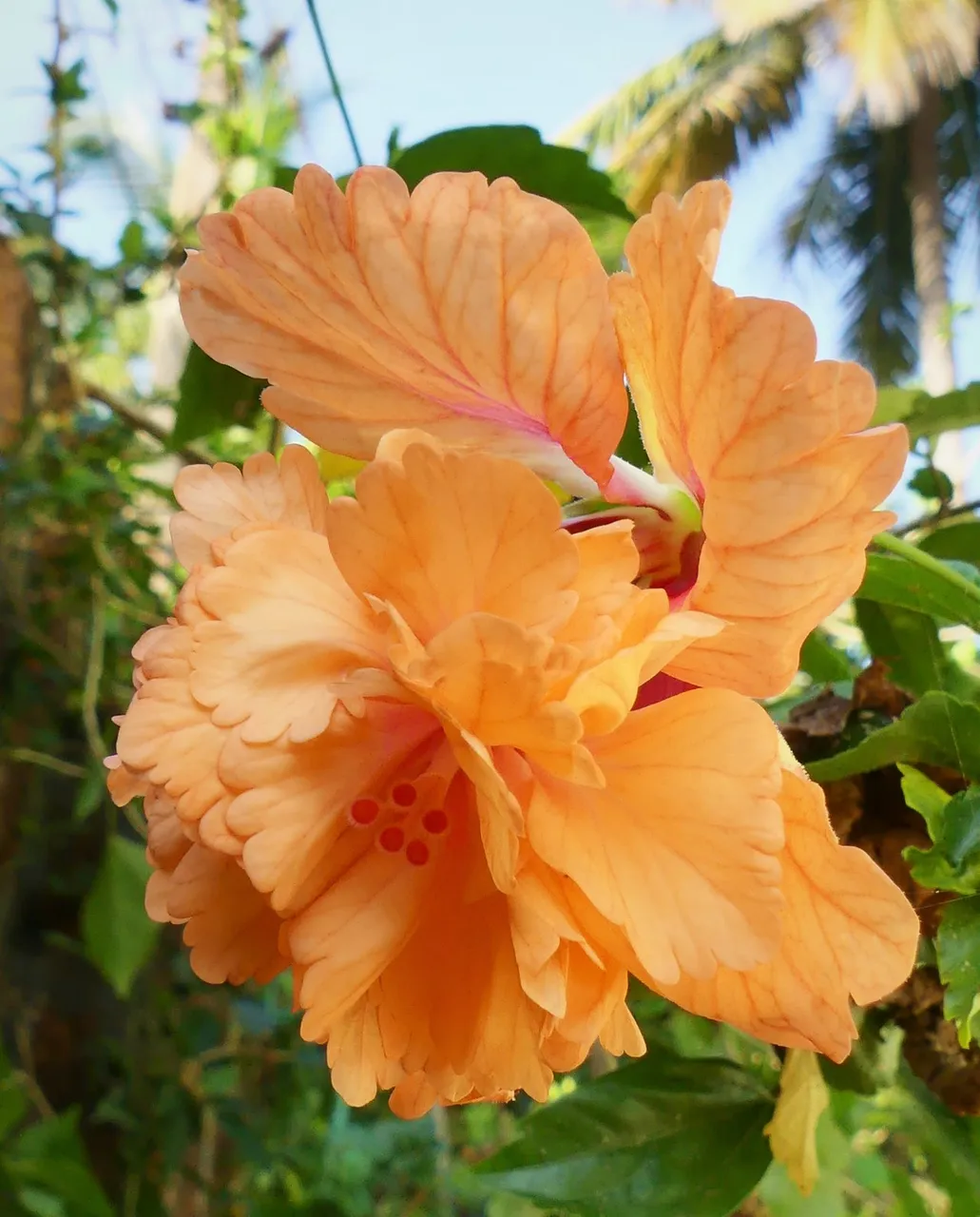
It is very widely used in hair oil preparations as it is a natural conditioner for hair problems including dandruff, itchy scalp, hair loss, premature greying of the hair, and alopecia.
Hibiscus Hair Oil
Grind hibiscus leaves and flowers to a paste and mix with virgin coconut oil. Simmer together on low heat until the water content disappears. Let sit and infuse for 48 hours. Filter and then store in a clean glass bottle.
Hibiscus Hair Rinse
Soak 10 hibiscus flower petals in 500ml (2 cups) of water overnight. The next morning squeeze the flowers with your hands and remove them from the solution. Apply the filtered tea to your hair. Cover your hair with a shower cap. Rinse with warm water after 20 minutes.
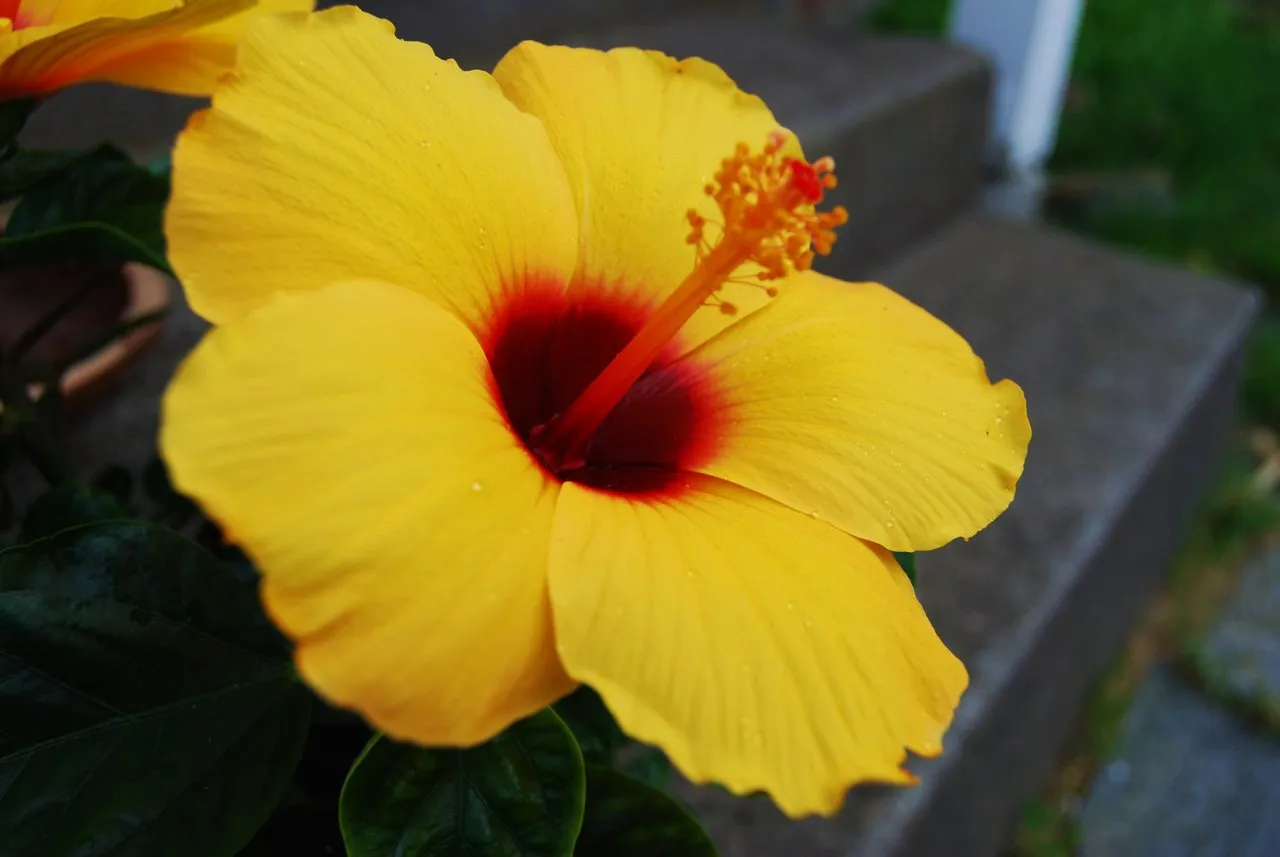
Hibiscus For Anemia: Dry 20 to 30 hibiscus flower buds in the shade and grind them into a fine powder. Store in an airtight container. Consume half a teaspoon of powder with honey twice a day to increase the hemoglobin contents of your blood.
Heavy bleeding In menstruation uses tender buds of hibiscus to make a paste and mix it into milk. and consume the milk.
Handful flowers soaked in the water overnight filter the next day on an empty stomach drink filtered water to control diabetic
Petals of hibiscus boiled in milk and drink below 40ml strengthen cardiac muscles. while using a flower just separate the petals from the flower to use.
Add 5 hibiscus petals or 1/2 teaspoon of flower powder to boiling water. After 2 minutes of boiling, remove from the heat. Strain and let cool to warm. this tea is very useful in high blood pressure and urinary tract infections.
Consuming powder of hibiscus with buttermilk helps bleeding piles.
The paste or powder consumed with lukewarm milk at night calms the
mind and helps to make a good night's sleep.
The tender buds of hibiscus are traditionally used as contraceptives.
There are a lot more benefits.
The natural acids aspartic and asparagine in the flower act as natural exfoliators that help to clear clogged skin pores. In addition, hibiscus's antibacterial properties can also control acne. slow down the anti-aging process and give a glow to the skin.
The damages caused by chemicals, dirt, pollutants, UV rays, etc. hibiscus can protect the skin by applying the scrub made by hibiscus petals powder and rose petals powder(mix both powders in 1:1 in the milk and apply on the face for 15-20 minutes and wash with lukewarm water)

This is my experience. Everybody is responsible for their health before trying some herbs always think about your prakruti (body type) and consult an ayurvedic practitioner about what is suitable for your body.
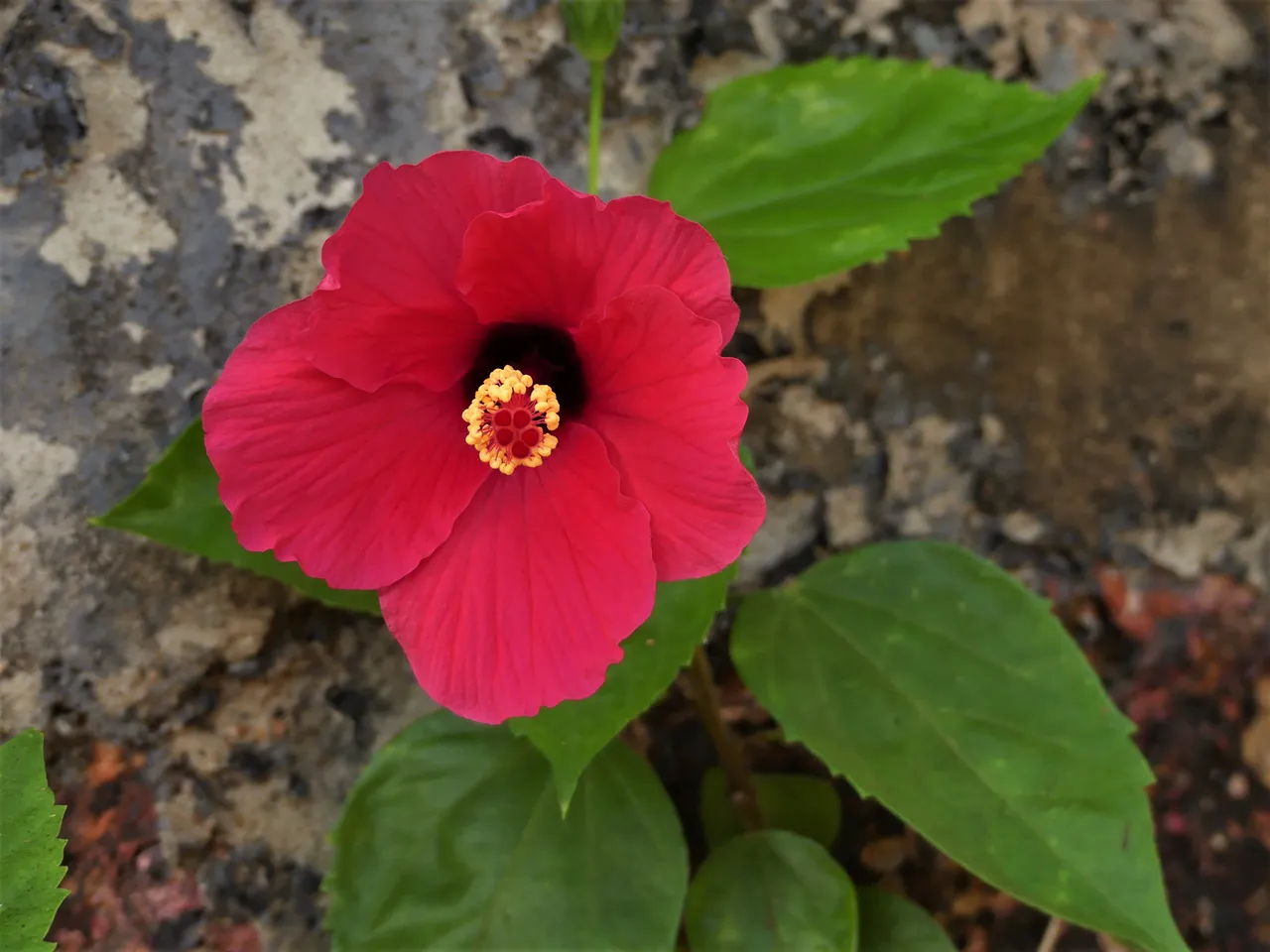
I am thankful for Hibiscus that nature and mother earth provides us. thanks to plants herbs, all elements, and the universe.🙏